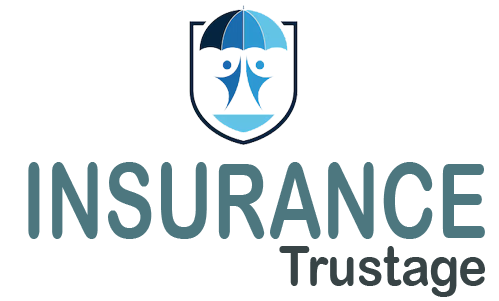Does Homeowners Insurance Include Liability Coverage?
Yes, homeowners insurance typically includes liability coverage. This aspect of homeowners insurance protects you financially in the event that someone is injured on your property or if you, a family member, or even a pet accidentally causes injury to another person or damages their property. This liability component helps cover the cost of legal fees, settlements, and medical bills, offering crucial protection in situations like:
- A guest slips and falls in your home.
- Your child accidentally breaks a neighbor’s window.
- Your dog bites someone.
Liability coverage is an integral part of homeowners insurance because it shields you from potentially expensive lawsuits or injury claims. However, the coverage limits of a standard policy may not be enough for high-net-worth individuals, who may benefit from additional umbrella insurance for extended liability protection.
What is Umbrella Liability Insurance?
Umbrella liability insurance is a type of insurance that provides additional liability coverage above the limits of your existing policies, such as homeowners, renters, or auto insurance. It kicks in once your primary insurance policy’s limits are exhausted, offering broader protection against large claims or lawsuits.
For example, if you have homeowners insurance with a $300,000 liability limit and face a lawsuit demanding $1 million, your umbrella insurance would cover the remaining $700,000 if your policy has sufficient coverage. Umbrella policies typically also cover claims that may not be included in standard policies, such as slander, libel, or defamation.
Umbrella insurance is especially valuable for individuals who have substantial assets to protect or face higher risks of lawsuits, such as landlords or business owners.
Does Liability Insurance Cover Intentional Acts?
No, liability insurance typically does not cover intentional acts. Liability insurance is designed to protect you from accidents, negligence, or unintentional harm to others, but it excludes coverage for deliberate actions.
Intentional acts refer to situations where someone knowingly causes harm or damage to another person or their property, such as:
- Assault or physical violence.
- Vandalism.
- Fraud or theft.
In these cases, the insurance company will deny coverage, as intentional acts fall outside the scope of what liability insurance is intended to protect against. However, certain exceptions, such as self-defense, might be covered depending on the policy and jurisdiction.
What is Employers’ Liability Insurance?
Employers’ liability insurance is a type of coverage that protects businesses against lawsuits filed by employees who suffer work-related injuries or illnesses. This insurance is often part of a workers’ compensation policy but focuses on claims where the employee alleges negligence or unsafe working conditions on the employer’s part.
Employers’ liability insurance covers:
- Legal defense costs.
- Settlements and damages awarded to the employee.
- Compensation for injuries resulting from employer negligence or workplace hazards.
It is essential for businesses to have employers’ liability insurance, as it protects them from financial losses due to employee-related lawsuits. In many places, it is legally required for businesses that have employees.
Can Liability Insurance Be Canceled or Denied?
Yes, liability insurance can be canceled or denied under certain circumstances. Insurers have the right to cancel or deny policies if the policyholder fails to meet specific requirements or violates the terms of the insurance agreement.
Common reasons for cancellation include:
- Non-payment of premiums: If you fail to pay the insurance premium, your policy can be canceled after proper notice.
- Fraud or misrepresentation: Providing false information during the application process or when filing a claim can lead to policy cancellation.
- Increased risk: If the insurer determines that your risk profile has changed significantly (such as starting a high-risk business or failing to maintain safety standards), your policy might be canceled.
Claim denial may occur if:
- The incident falls under policy exclusions (e.g., intentional acts or specific professional liabilities).
- The claim is filed late or without proper documentation.
- The policyholder fails to cooperate with the insurer during the claim process.
To avoid policy cancellation or claim denial, it is important to pay premiums on time, provide accurate information, and comply with the terms of the insurance contract.
Is Liability Insurance Tax-Deductible?
The tax-deductibility of liability insurance premiums depends on the context in which the insurance is used.
For businesses, liability insurance premiums are generally considered tax-deductible because they are classified as ordinary and necessary business expenses. This applies to various types of liability coverage, including general, professional, and product liability insurance.
However, for personal policies, such as the liability coverage included in homeowners or auto insurance, the premiums are typically not tax-deductible. There may be exceptions, such as if part of your home is used for business purposes, where you could deduct a portion of your homeowners insurance, including the liability component.
What is the Difference Between Claims-Made and Occurrence Policies?
Liability insurance policies generally come in two forms: claims-made and occurrence policies. The main difference between these two types lies in when coverage is triggered.
- Claims-made policies: Coverage is provided if the claim is made during the policy period, regardless of when the incident occurred. These policies typically include a retroactive date, meaning any incidents that occurred before this date are not covered, even if the claim is filed during the policy period. Claims-made policies are common in professional liability insurance, such as malpractice insurance.
- Occurrence policies: These provide coverage for incidents that occur during the policy period, even if the claim is filed after the policy has expired. Occurrence policies are often used for general liability insurance, as they offer long-term protection for incidents that may result in claims years after the policy has lapsed.
Understanding the difference between claims-made and occurrence policies is crucial when choosing liability insurance, as it can affect when and how claims are covered.
Does Liability Insurance Cover Lawsuits from Clients?
Yes, liability insurance can cover lawsuits filed by clients, depending on the type of coverage you have. For example:
- General liability insurance covers claims of bodily injury or property damage filed by clients. If a client is injured while visiting your business or their property is damaged as a result of your work, your policy will cover the legal fees and any compensation awarded.
- Professional liability insurance (also known as errors and omissions insurance) covers lawsuits related to negligence, mistakes, or failures in your professional services. If a client sues you because they believe your advice, product, or service caused them financial loss or harm, this insurance will cover the associated costs.
Having the appropriate liability insurance is vital for protecting your business from potential legal action brought by clients.
Conclusion
Liability insurance provides essential financial protection against a wide range of risks, from accidents and property damage to professional errors and negligence. Whether it’s through homeowners, umbrella, or employers’ liability insurance, having adequate coverage in place is crucial for managing potential legal and financial exposures. Understanding the types of liability insurance available, their coverage limitations, and their tax implications helps individuals and businesses make informed decisions about their insurance needs.


